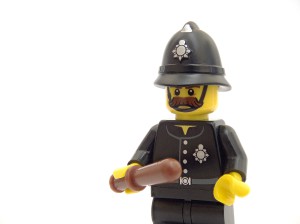Trichotillomania: Goodbye “Trich Police”, Hello HRT
Posted by Steven J. Seay, Ph.D. in Trichotillomania
To recover from trichotillomania (“trich”), retire ineffectual strategies and find a psychologist who practices habit reversal training (HRT).
Imagine that you have a rather large blemish right in the middle of your forehead. It’s not one of those pseudo-invisible blemishes that can only be perceived by you. Rather, it’s an angry, red mark that is readily apparent to nearly all the people with whom you interact throughout the day. Most people are polite enough and don’t acknowledge it out loud, although you can sometimes feel their lingering gazes. Others are less discrete, and you’re forced to have a short conversation about it. Neither situation is welcome; in fact, you’re beginning to wish that you had just stayed at home.
Now imagine that multiple times throughout the day, a well-meaning person gives you advice on skin care. At first maybe this advice is welcome, and you might even be exposed to some new ideas that you wouldn’t have thought of on your own. But suppose this advice continues to come again…and again…and again. It really doesn’t take very long before you come to resent this well-intentioned advice, and you’re going out of your way to avoid this person.
Sadly, similar situations play out almost daily for many individuals with trichotillomania, or “trich”. To be clear, trichotillomania has nothing to do with blemishes; it’s an impulse-control disorder associated with compulsive hair pulling. However, just as in the example above, trich causes individuals to receive unwanted scrutiny of their physical appearance. In the case of trich, this might be a bald patch on the scalp, eyelashes, eyebrows, or another part of the body. Not surprisingly, many individuals with trich feel embarrassed or ashamed of how they look, and they often find it difficult to explain away their hair loss in a way that doesn’t draw additional unwelcome attention to the problem. Moreover, similar to the example above, just as with a blemish, no one chooses to have trichotillomania.
As a psychologist in Palm Beach, Florida, I work closely with kids, teens, and adults throughout the greater Palm Beach, Fort Lauderdale, and Miami areas on strategies for recovering from trichotillomania. For parents and loved ones of individuals with trich, it is very easy to fall into the role of “Trich Police”. It’s not uncommon for some parents to inspect their children’s scalp/eyebrows/eyelashes daily in efforts to monitor the condition. Additionally, there is often an overabundance of advice, criticism, and questioning of the trich-sufferer’s willpower and motivation to change. In most cases, unless these strategies have been advocated by the individual affected by trich, such procedures are ill-advised. They will often fail to decrease hair-pulling behaviors and will instead (in most cases) increase household conflict.
If you, or someone you love, has been affected by trichotillomania, retire these ineffectual strategies. Equip yourself with more knowledge about the condition and find a therapist who practices habit reversal training (HRT). Research studies indicate that HRT is the most effective way to treat trich. Habit reversal training will require patience, time, and hard work on everyone’s part, but as opposed to time spent working for the Trich Police, it’s effort well-spent.
Questions? Comments? Sound off below. …or continue the discussion on Facebook, Twitter, or Google+.



